Lydia Sviatoslavsky with a disruptive view on style
Consulting the Crass
When it comes to that ineffable thing known as literary voice, Constance Hale gives us this way of thinking about it: “The writer leaves us with a sense that we are listening to a skilled raconteur rather than passing our eyes over ink on paper.” (That’s in Sin & Syntax, p. 271). She gives us a bracing range of such skilled raconteurs—from Shakespeare to Muhammad Ali, from Junot Díaz to Joan Didion.
I like Hale’s catholic taste, but I suspect I have a higher tolerance for the experimental than she. In a world awash in watery media produced for hasty consumption (and disposal), I’m constantly on the prowl for challenging, well-wrought writing. I favor writing that shows a firm, companionate hand, one that leads readers through a labyrinth littered with the detritus of the mind. Perhaps it inspires existential discomfort, like the philosophically bent works of  Michel Houellebecq and
Michel Houellebecq and  Mary Gaitskill. Perhaps it conjures lucid visions, somewhat repulsive yet bizarrely beautiful, like the slime and smut gleefully rendered by
Mary Gaitskill. Perhaps it conjures lucid visions, somewhat repulsive yet bizarrely beautiful, like the slime and smut gleefully rendered by  William S. Burroughs, gonzo journalist
William S. Burroughs, gonzo journalist  Hunter S. Thompson, and the ever-acidic
Hunter S. Thompson, and the ever-acidic  Kathy Acker. The price that great writers pay for cursing convention and soiling the milquetoast ranks, it seems, is braving an inflamed collective that refuses to acknowledge the filth at its feet. At best, such artistic confrontation is met with a wince. At worst, literary banishment. And so writers who present an unvarnished societal mirror, history reveals, risk hostile dismissal by our loudest puritans and patriarchs.
Kathy Acker. The price that great writers pay for cursing convention and soiling the milquetoast ranks, it seems, is braving an inflamed collective that refuses to acknowledge the filth at its feet. At best, such artistic confrontation is met with a wince. At worst, literary banishment. And so writers who present an unvarnished societal mirror, history reveals, risk hostile dismissal by our loudest puritans and patriarchs.
Too often we're seduced by the sleazy maw of the snake-oil salesman, in the form of artificially inflated headlines and embellished cliché. We ingest aimlessly, sampling uninspired writing as we would a soured breakfast buffet, searching for nourishment among the likes of rotting oranges and stale, brittle biscuits. We are left hungry, unmoved. Of course, the writerly renegades were not invited to this sorry affair, despite their richer offerings. So … where are they? Certainly not in that stuffy dining room. Reader, perhaps it’s time to creep towards the back door, to puncture the pristine, vacuum-sealed rhetoric of Popular Opinion. Perhaps it’s time to consult the crass….
WHO: Michel Houellebecq
WHY HE’S CRASS:
Michel Houellebecq, often referred to as the “enfant terrible” of the French literary world, has been thrust into the center of multiple fiery controversies, thanks to his bold critiques of political precarity and organized religion. Houellebecq’s 2001 novel  Platform features raunch to the point of excess, but what landed the novelist in court was its criticism of Islam and its description of an Islamic extremist attack. (This according toToby Luckhurst of BBC News). Houellebecq found himself embroiled in further scandal when he published
Platform features raunch to the point of excess, but what landed the novelist in court was its criticism of Islam and its description of an Islamic extremist attack. (This according toToby Luckhurst of BBC News). Houellebecq found himself embroiled in further scandal when he published  Submission, a novel that projected an image of France under Sharia law in 2022. This novel, released in 2015, has since been associated with the
Submission, a novel that projected an image of France under Sharia law in 2022. This novel, released in 2015, has since been associated with the  Charlie Hebdo terrorist attacks in Paris, which occurred when the satirical French publication released an issue bearing Houellebecq’s tired yet prophetic mug on the cover. Such violence was arguably inspired by a topical misreading of Houellebecq’s work, as journalist Steven Poole claimed in a 2015 piece for The Guardian. “Submission is not primarily about politics at all. The real target of Houellebecq’s satire—as in his previous novels—is the predictably manipulable venality and lustfulness of the modern metropolitan man, intellectual or otherwise.”
Charlie Hebdo terrorist attacks in Paris, which occurred when the satirical French publication released an issue bearing Houellebecq’s tired yet prophetic mug on the cover. Such violence was arguably inspired by a topical misreading of Houellebecq’s work, as journalist Steven Poole claimed in a 2015 piece for The Guardian. “Submission is not primarily about politics at all. The real target of Houellebecq’s satire—as in his previous novels—is the predictably manipulable venality and lustfulness of the modern metropolitan man, intellectual or otherwise.”
WHY HE’S GOOD:
Houellebecq’s writing is a delicious synthesis of cultural commentary, existential philosophy, and rampant promiscuity. His work is most likely to be found scattered among cigarette stubs and reeking refuse, text scarified by a shaky hand in cherry-red ink.
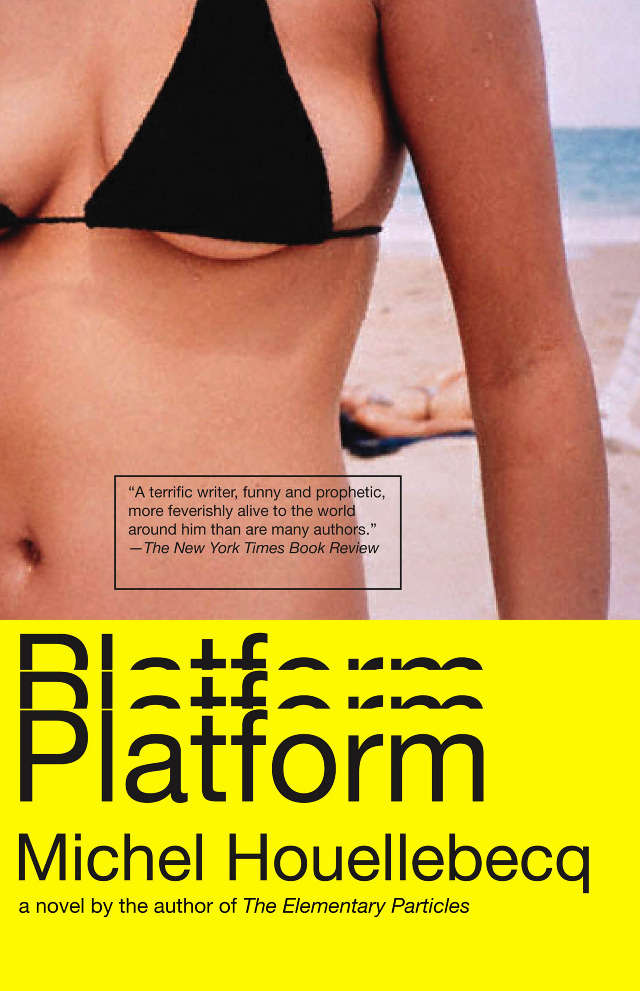
READ:
“Questions of aesthetics and politics are not my thing. It’s not up to me to invent or adopt new attitudes or new affinities with the world—I gave up all that at the same time I developed a stoop and my face started to tend toward melancholy. I’ve attended many exhibitions, openings, many performances that remain unforgettable. My conclusion, henceforth, is that art cannot change lives. At least not mine.” (Platform, p. 12.)
WHO: Mary Gaitskill
WHY SHE’S CRASS:
“Mary Gaitskill’s collection of short stories,  Bad Behavior, has a curious history," writes Stephen Westfall in BOMB Magazine. "None of the stories included in the book had been previously published in the usual “major” literary magazines, journals or quarterlies. They had, in fact, been rejected—all of them. One can almost understand why. Gaitskill writes about the appalling things contemporary men and women can do to each other without flinching or giving in to easy moralizing. She appears to be almost ruthlessly objective about matters that most people would find impossible to be objective about.”
Bad Behavior, has a curious history," writes Stephen Westfall in BOMB Magazine. "None of the stories included in the book had been previously published in the usual “major” literary magazines, journals or quarterlies. They had, in fact, been rejected—all of them. One can almost understand why. Gaitskill writes about the appalling things contemporary men and women can do to each other without flinching or giving in to easy moralizing. She appears to be almost ruthlessly objective about matters that most people would find impossible to be objective about.”
WHY SHE’S GOOD:
Gaitskill expertly depicts the intricacies of interpersonal power dynamics, illuminating the rot that remains in the wake of sugared idealism. Her dialogue is devastatingly gripping.
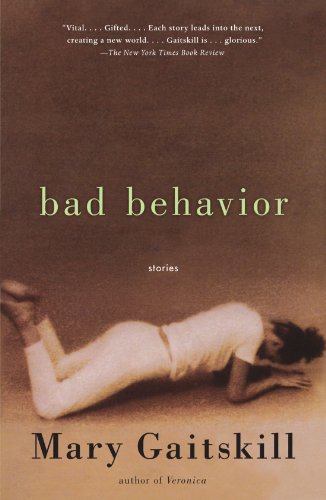
READ:
“She was too exhausted to extract much from the pedestrian conversation, but the sound of his voice, the position of his body and his sudden receptivity were intoxicating. Time took on a grainy, dreamy aspect that made impossible conversations and unlikely gestures feasible, like a space capsule that enables its inhabitants to happily walk up the wall… She felt as if she were a very young child, when every notion that appeared in her head was new and naked of association and thus needed to be expressed carefully so it didn’t become malformed. She wanted to set every one of them before him in a row, as she had once presented crayon drawings to her father in a neat many-colored sequence. Then he would shift his posture slightly or make a gesture that suddenly made him seem so helpless and frail that she longed to protect him and cosset him away, like a delicate pet in a matchbox filled with cotton… ‘Can I abuse you some more now?’ he asked sweetly.” (“A Romantic Weekend,” Bad Behavior, p. 51.)
WHO: William S. Burroughs
WHY HE’S CRASS:
“First published in 1959 by the provocative Olympia Press in France, William Burroughs’  Naked Lunch (sometimes The Naked Lunch) provides a fractured account of American homosexual and drug cultures in the 1950s," writes Tracey Clarke of the National Archives of Australia. "One of the most radical novels of the 20th century, it was banned as ‘hard-core pornography’ by Australian Customs after an imported copy was seized at Port Adelaide in February 1960…. Chairman Kenneth Binns concluded that ‘there is no need to note any particularly objectionable scene or passage for the book is so full of them and the general writing so extremely coarse that one need only consider the general character and tone.’”
Naked Lunch (sometimes The Naked Lunch) provides a fractured account of American homosexual and drug cultures in the 1950s," writes Tracey Clarke of the National Archives of Australia. "One of the most radical novels of the 20th century, it was banned as ‘hard-core pornography’ by Australian Customs after an imported copy was seized at Port Adelaide in February 1960…. Chairman Kenneth Binns concluded that ‘there is no need to note any particularly objectionable scene or passage for the book is so full of them and the general writing so extremely coarse that one need only consider the general character and tone.’”
WHY HE’S GOOD:
To neglect Burroughs is a grave mistake. The ingenuity of Burroughs’ warped, word-wrought cinema is a sickening confection, and only the cream perched atop his artful wariness of society at large. For a more explicit account of his thoughts on “the American nightmare,” I suggest you read  The Job.
The Job.
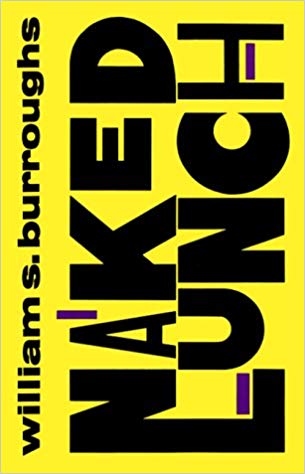
READ:
“Carl saw Joselito in a big clean room full of light, with private bath and concrete balcony. And nothing to talk about there in the cold empty room, water hyacinths growing in a yellow bowl and the China blue sky and drifting clouds, fear flickering in and out of his eyes. When he smiled the fear flew away in little pieces of light, lurked enigmatically in the high cool corners of the room. And what could I say feeling death around me, and the little broken images that come before sleep, there in the mind?” (Naked Lunch, p. 44.)
WHO: Kathy Acker
WHY SHE’S CRASS:
“Shortly after its publication in 1984,  Acker’s screaming asteroid of a novel was officially banned by both Germany and South Africa," reports Grove Atlantic. "Author
Acker’s screaming asteroid of a novel was officially banned by both Germany and South Africa," reports Grove Atlantic. "Author  Lidia Yuknavitch adds that it 'may as well have been banned in America, since it only existed in a kind of subterranean, black market underworld if you were by chance a young woman reader.’”
Lidia Yuknavitch adds that it 'may as well have been banned in America, since it only existed in a kind of subterranean, black market underworld if you were by chance a young woman reader.’”
WHY SHE’S GOOD:
Carnivorous and abrasive, Acker peppers her surreal cut-up dreamscapes with cultural criticism and a keen sense of her own shifting narrative mask. A beautiful blight on conventional conceptions of literature. Acker’s writing cannot be unread.
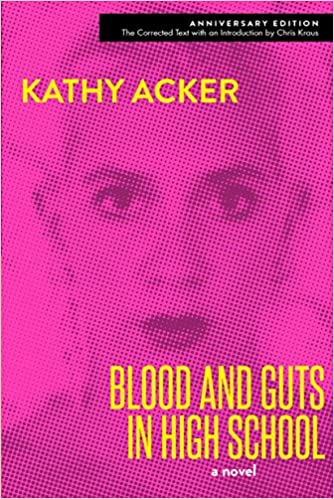 READ:
READ:
“Johnny stopped in his apartment for just a second to change his clothes. Janey told him she wanted to go out to dinner with him. Johnny replied he thought she didn’t. She pleaded that she had been feeling jealous and she didn’t mean to feel. She promised that she wouldn’t feel jealous as long as she knew what to expect. He warned her to watch out for jealousy, he knew all about jealousy… Janey started protesting in her head that that wasn’t the point; she shut herself up, and calmly asked when and where they would be having dinner and please, before she left, could they pretend they were in love. It would be a very romantic two days and then nothing. She was better at handling fantasy than reality.” (Blood and Guts in High School, p. 17.)
WHO: Hunter S. Thompson
WHY HE’S CRASS:
“Writers Under Surveillance: Hunter S. Thompson’s FBI Files” by MuckRock (in  Global Investigative Journalism Network) reports that “according to the FBI, some of their records on Hunter S. Thompson, counterculture journalist and Gonzo investigator, may have been destroyed in purges in 1994 and 1998; the rest were sent over to the National Archives and Records Administration, vault of historically-relevant materials from federal agencies across the government. What remains in the available 58 pages reveal that the agency’s interest in the drug-toting Doctor began before his hit
Global Investigative Journalism Network) reports that “according to the FBI, some of their records on Hunter S. Thompson, counterculture journalist and Gonzo investigator, may have been destroyed in purges in 1994 and 1998; the rest were sent over to the National Archives and Records Administration, vault of historically-relevant materials from federal agencies across the government. What remains in the available 58 pages reveal that the agency’s interest in the drug-toting Doctor began before his hit  Fear and Loathing in Las Vegas, starting with his coverage of the Hell’s Angels motorcycle gang.”
Fear and Loathing in Las Vegas, starting with his coverage of the Hell’s Angels motorcycle gang.”
WHY HE’S GOOD:
Thompson was a man who lived as savagely as he wrote. If you believe that utter debauchery and sound critical insight can’t mingle exceptionally well, you probably haven’t read Hunter S. Thompson.
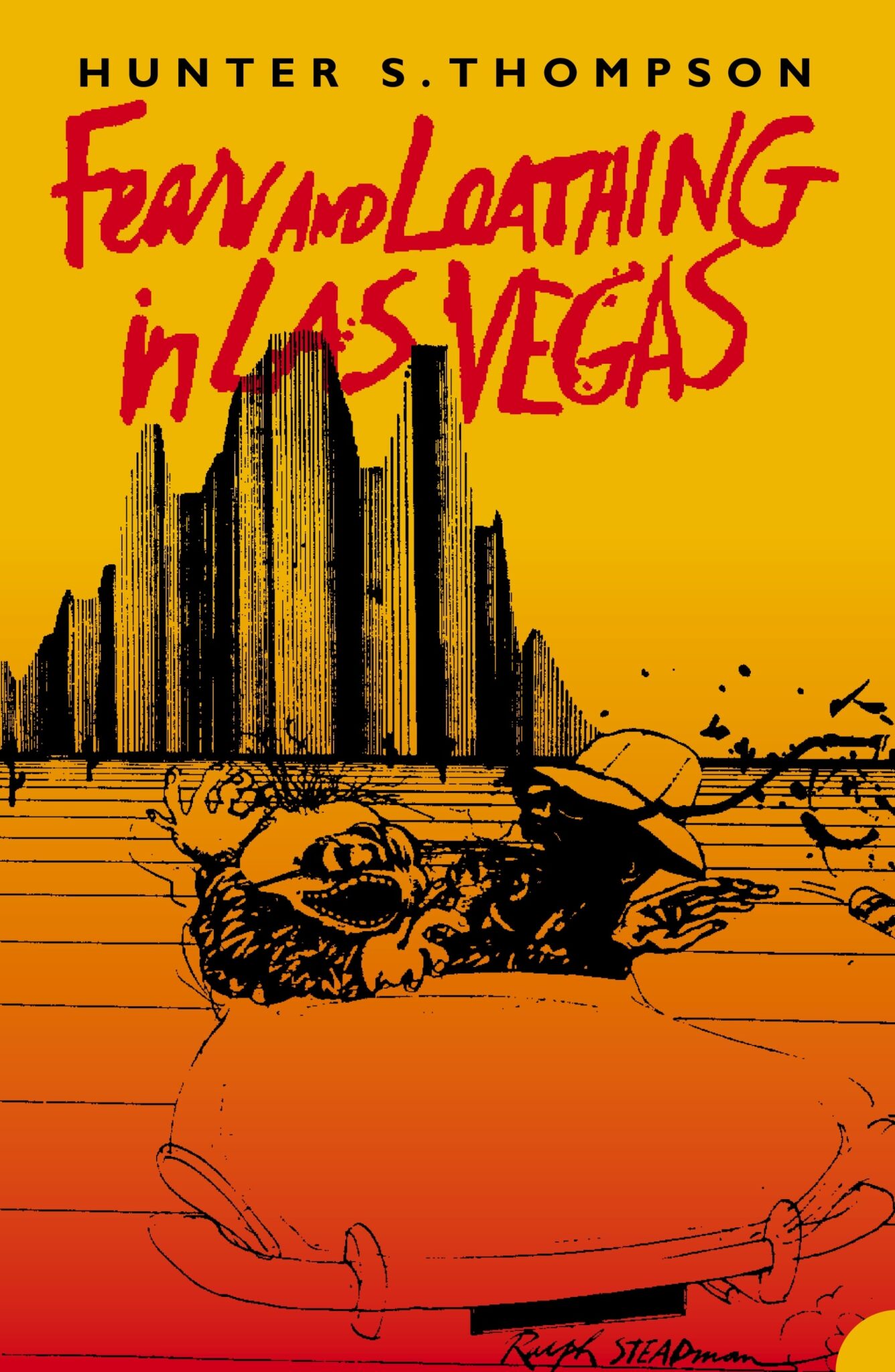
READ:
“Journalism is not a profession or a trade. It is a cheap catch-all for fuckoffs and misfits—a false doorway to the backside of life, a filthy piss-ridden little hole nailed off by the building inspector, but just deep enough for a wino to curl up from the sidewalk and masturbate like a chimp in a zoo-cage.” (Fear and Loathing in Las Vegas, p. 200.)
—Lydia Sviatoslavsky
{Lydia Sviatoslavsky is an Oakland-based freelance writer and research assistant. She has written for  Audiofemme,
Audiofemme,  Local News Matters,
Local News Matters,  Broke-Ass Stuart,
Broke-Ass Stuart,  SPAM zine and
SPAM zine and  Collectors Weekly. Her consumption of the crass heavily informs her own autofictive writing, which she features in
Collectors Weekly. Her consumption of the crass heavily informs her own autofictive writing, which she features in  self-published zines.}
self-published zines.}
| |
Share This:

